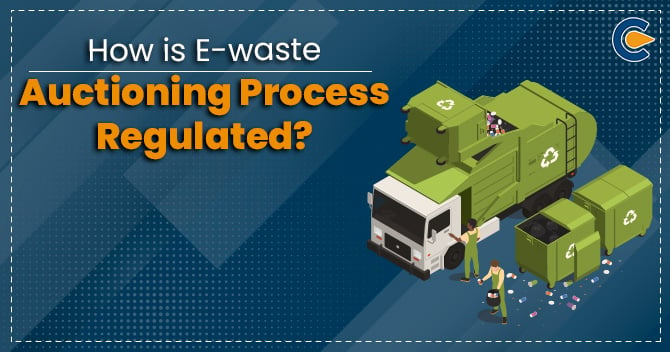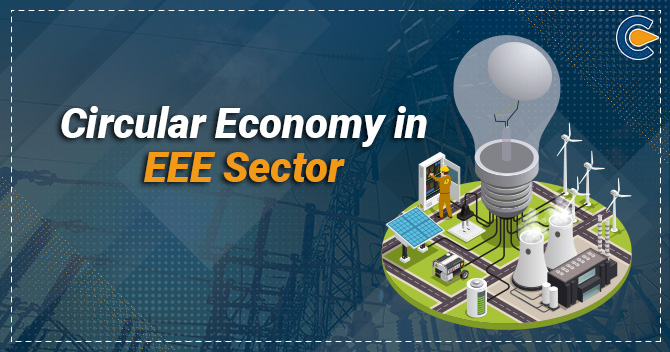Mounting Waste and using destructive methods for dealing with pollution are one most prevalent problems currently existing in India. With landfill and dumping areas overflowing, leading to people are taking drastic steps to burn the Waste, which produces more toxic gases leading to Air pollution in an otherwise polluted area, especially in the case of E-Waste recycling, where a large amount is recycled through the informal sector, and the Waste after recycling is disposed of in nearby water bodies, landfill area or is burned. In this article we described about E-waste auctioning process regulated.
Therefore the government is required to promote regulated E-Waste recycling by taking practical steps, including organizing a regulated E-Waste Auctioning process by which recycling units get sufficient raw material to continue their business without any hiccup.
Electronic Waste (E-Waste) in India
India is one of the fastest growing economies in the world, with a total population of 1.3 billion people. This development has resulted in more people having access to new technology and gadgets resulting in a massive accumulation of Electronic Waste in India. As per the Global E-Waste Monitor 2020, Electronics worth approximately 53.6 million are discarded, while India generated 3.2 million tonnes of E-Waste, ranking only behind China and the United States of America.
According to the reports of The Associated Chambers of Commerce and Industry of India on “Electronic Waste Management in India”, India will approximately generate 5 tonnes of Electronic Waste by 2021. In India, under E-Waste (Management) Rules, 2016, E-Waste is defined as Waste which is electrical and electronic equipment (EEE)[1], whole or in part, discarded as Waste by consumers (individual or bulk) as well as rejects from the manufacturing, refurbishment and repair processes.
E-Waste Management in India
E-Waste management involves proper collection, recovery, recycling and disposal of E-Waste in order to decrease the adverse impact on health and the environment. In India, the process of E-Waste management is regulated by E-Waste (Management) Rules, 2016, which defines not only the process of adequately managing the E-Waste but also makes producers liable for their Waste as per Extended Producers’ Responsibility. One of the foremost vital aspects of the management of E-Waste is Collection, where the collected Waste determines the working and functioning of Recycling plants.
This Waste can also be acquired by the Recyclers/Producers’ by participating in the E-Waste Auctioning Process organized by various state authorities from time to time.
Benefits of E-Waste Auction to the buyer
- By participating in the Auction, the middle man will be removed
- Because Auction happens within public knowledge, Transparency is maintained throughout the process
- Transaction costs will be lower
- Optimal price setting
- The administrative cost will be lower
- Revenues will be increased
E-Waste Auctioning process in India
In India, the conditions to be fulfilled by PIBOs (Producers/Importers/Brand owners) are set by the Central Pollution Control Board/State Pollution Control Board under the guidance of the Ministry of Environment, Forests and climate change. These prerequisite conditions are:-
- The quality and description, along with proper scrutiny of the E-Waste, must be provided to the person who is bidding to facilitate him to quote their rates.
- Conditional terms in any offers will not be entertained or accepted.
- The E-Waste to be bid in an auction will be sold to the bidder quoting the highest for that specific item.
- Once the offer is accepted, the E-Waste is at the risk of the buyer in every procedural aspect.
- The bidder will pay the goods and services taxes at the time of the delivery.
- EMD (Earnest money deposit) for the successful bidder will be adjusted from the total payment.
- In case of an unsuccessful Bidder, Earnest’s Money Deposit will be paid to him within one month of the auction date.
- The winning bidder must remove all of the goods disposed of from the disposal location within three days to five days of receiving the balance payment. If the bidder fails to do so, the entire sum of the bid is forfeited.
- The person who the highest bidder authorizes is only permitted to live the E-Waste from the disposal location of the Central Pollution Control Board.
- Central Pollution Control Board sees fit to pull back any E-Waste item from the action by giving the reason for the withdrawal.
- The amount of item should be submitted by the highest bidder within three days, and if, in any case, he fails to pay the Earnest money deposited by him will be forfeited.
- If any dispute arises during and after the Auction, both parties have to abide by the final decision of the Chairman of the Central Pollution Control Board.
Documents to be submitted along with the bid
The document to be submitted by the bidders are:-
- Copy of PAN Card
- Address Proof such as Voter ID/ Aadhar Card/ Ration Card
- Copy of registration and authorization for disposal of e-waste issued by the Pollution Control Board or Pollution Control Committee.
- Details of Bank Account
- EMD (Earnest Money Deposited)
Auctioning Process
- As per the regulations, the bidding happens under two systems one is a technical bid, and the other is a financial bid which is sealed by the participants separately in a single sealed envelope.
- Earnest money Deposit (EMD) for a specific amount must be present in the technical bids along with all the technical details and signature as prescribed by the authorities. In contrast, the commercial bid must contain the details of the bidder with Earnest Money Deposit (EMD) details and should be submitted in sealed condition. For bidders like State or central PSU’s bidders like State or central PSA in the sealed condition. One is a technical bid, and the other is a financial bid, which is sealed by and Government of India Society. As established under the appropriate Act, the Earnest Money Deposit (EMD) requirement is excused.
- The bid (technical and financial) are to be submitted separately online.
- The valid ID Proof (self-attested copy of Voter ID/ Aadhar Card/ Ration Card), recycler certificate verifies copy and copy of Demand draft is to be submitted in the technical bid which is to be uploaded on E-Portal.
- Then before the due date of the proposal of the bid, the demand draft is to be drooped near the reception of CPCB in the tender box.
- Then only to technically qualify forms/producers/recyclers, the financial bid will open.
- Only authorized recyclers, Producers Responsibility Organisation, Extended Producers Responsibility authorized producers and dismantlers are permitted to partake in the Auction for discarding of E-Waste.
Conclusion
As indicated above that E-Waste is mounting in India, making it a priority for the government to not only correctly implement the present laws that as the E-Waste (Management) Rules, 2016, but also encourage the setting up of legal and organized recycling units by providing various incentives, tax reduction and most of all raw material.
While some governmental organizations do organize E-Waste Auction, in many states, recyclers have to depend on the middle man or informal sector to meet their Raw material needs.
Read our Article:How to start an E-waste Management Business in India?











